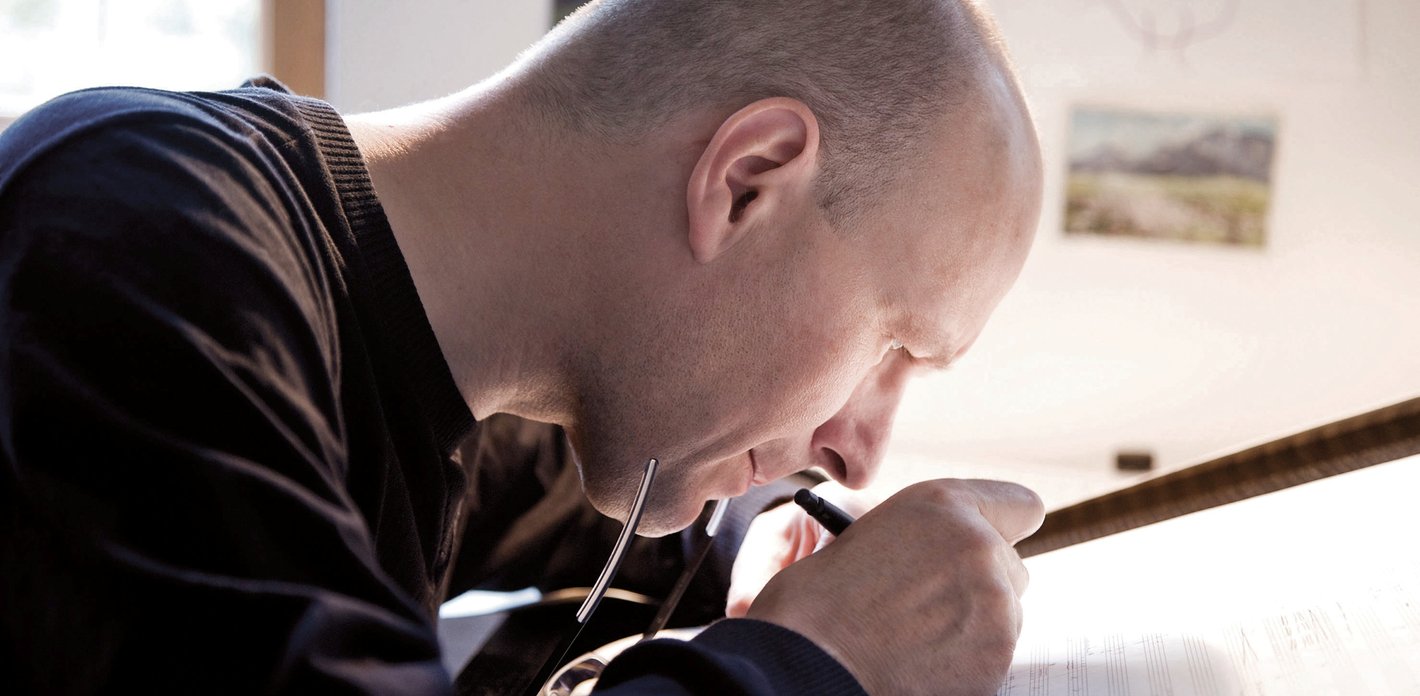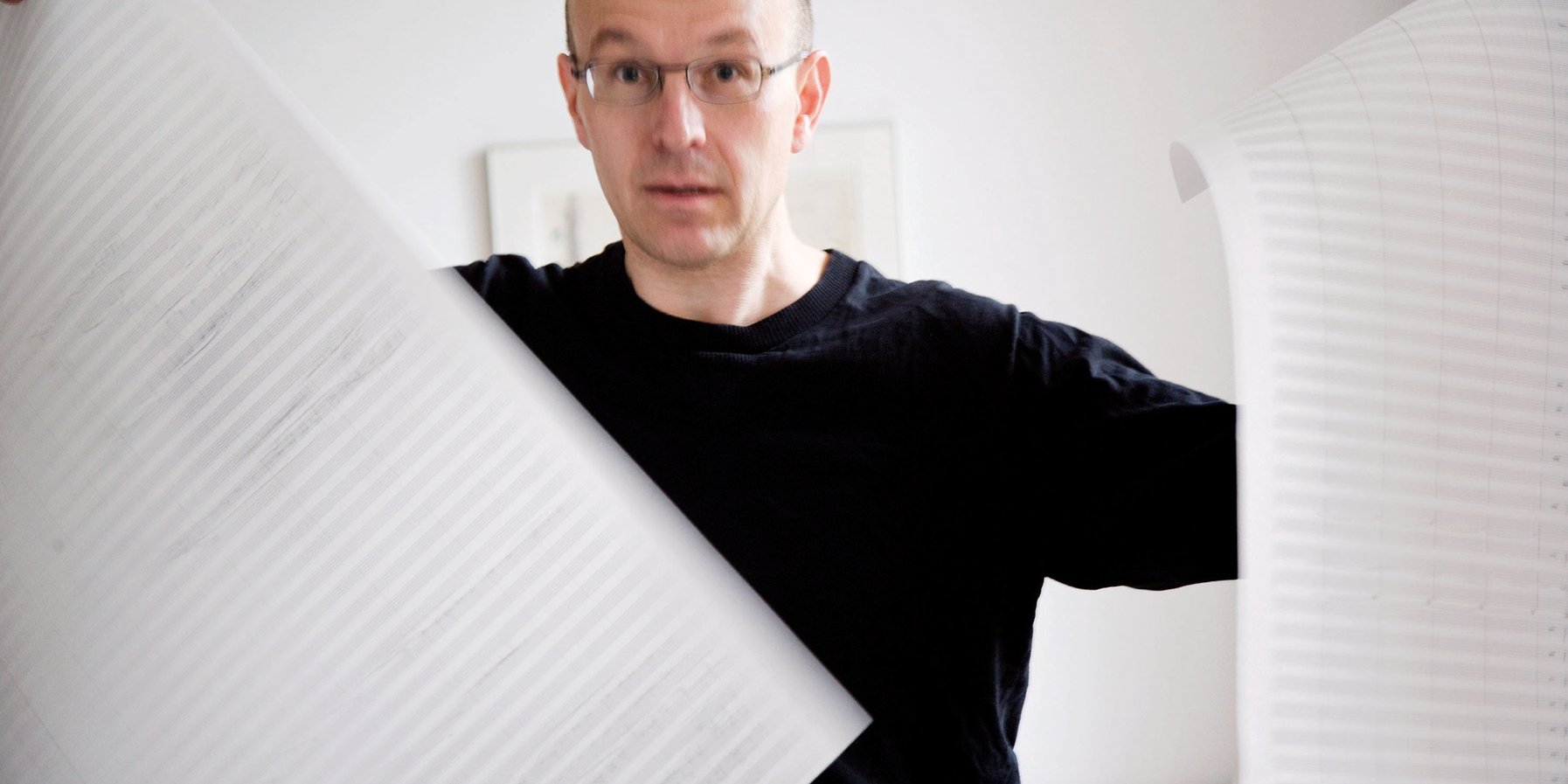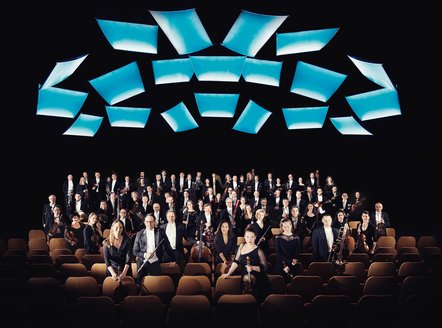When it comes to classical composers, most people think of old masters such as Beethoven and Mozart. But the »Elbphilharmonie Visions« festival demonstrates that contemporary music can also be »just as rich and diverse as humanity itself« (Alan Gilbert). The festival’s programme features only music by contemporary composers. Not only is that musically very exciting, it also offers an amazing opportunity to ask the composers questions about their works and the process of creating them. How do you go about composing? Do you have a concrete idea of the work before you sit down to write it, or does it emerge only when you start? What role do your surroundings play? And what are your hopes for your music?
The Festival composers talk about this in short interviews. In this case with the Austrian Thomas Larcher, to whom the Elbphilharmonie is devoting a special spotlight in the 2022/23 season.
Do you already have a strong vision of a work before you set about writing it?
I can't really say. And if I do answer the question, it doesn't really help the listener very much. It depends on so many things – the circumstances, the interpreters, the texts. The closest I can come to an answer is to say that everything begins with a blank sheet of paper…
What role do non-musical factors play in your work?
The strongest role possible – or no role at all! Music is a part of the world, so in writing music I am acting in and reacting to the world. When you're working on paper, the ideal condition is to be focused completely on your work and become engrossed it it.
At the »Elbphilharmonie Visions« festival, contemporary orchestral music plays a more prominent role than probably at any other concert hall in the world: 18 works by 18 composers are being performed on nine evenings. Do you think that's a good idea, or is it the wrong strategy?
If people come to the concerts, it's a good idea. If they don't, it's not! But they are coming, so that's great.
What does contemporary music need to win the public's favour?
A needle to regularly prick the bubble of self-congratulation that permeates this so-called »New Music«. Something that one could say about many other areas of modern life too.
What improvements to concerts would you like to see – today and in the near future?
I'd like beaming technology to finally become real, and I'd like to see an end to all this marketing lingo brimming with superlatives. The result is dishonest, and the audience will inevitably be disappointed. I am also in favour of longer intervals and a significant improvement in the quality of the cake served, especially in Germany.
Am Puls der Zeit
Mit dem Newsletter »cutting edge« über alle Konzerte mit zukunftsweisender Musik in der Elbphilharmonie auf dem Laufenden bleiben.
The music of Thomas Larcher at »Elbphilharmonie Visions«
- Elbphilharmonie Großer Saal
NDR Radiophilharmonie / Pierre Bleuse
Kaija Saariaho / Thomas Larcher – Elbphilharmonie Visions
Past Concert





